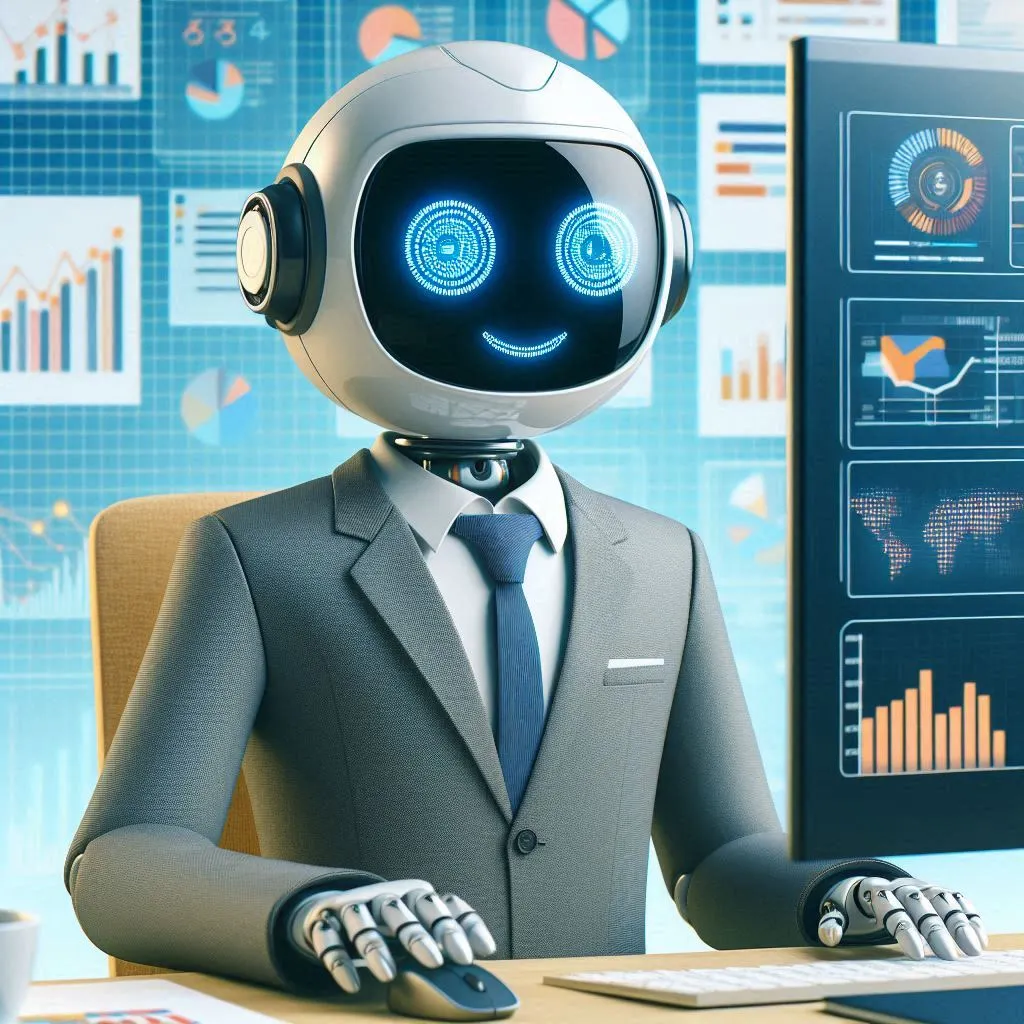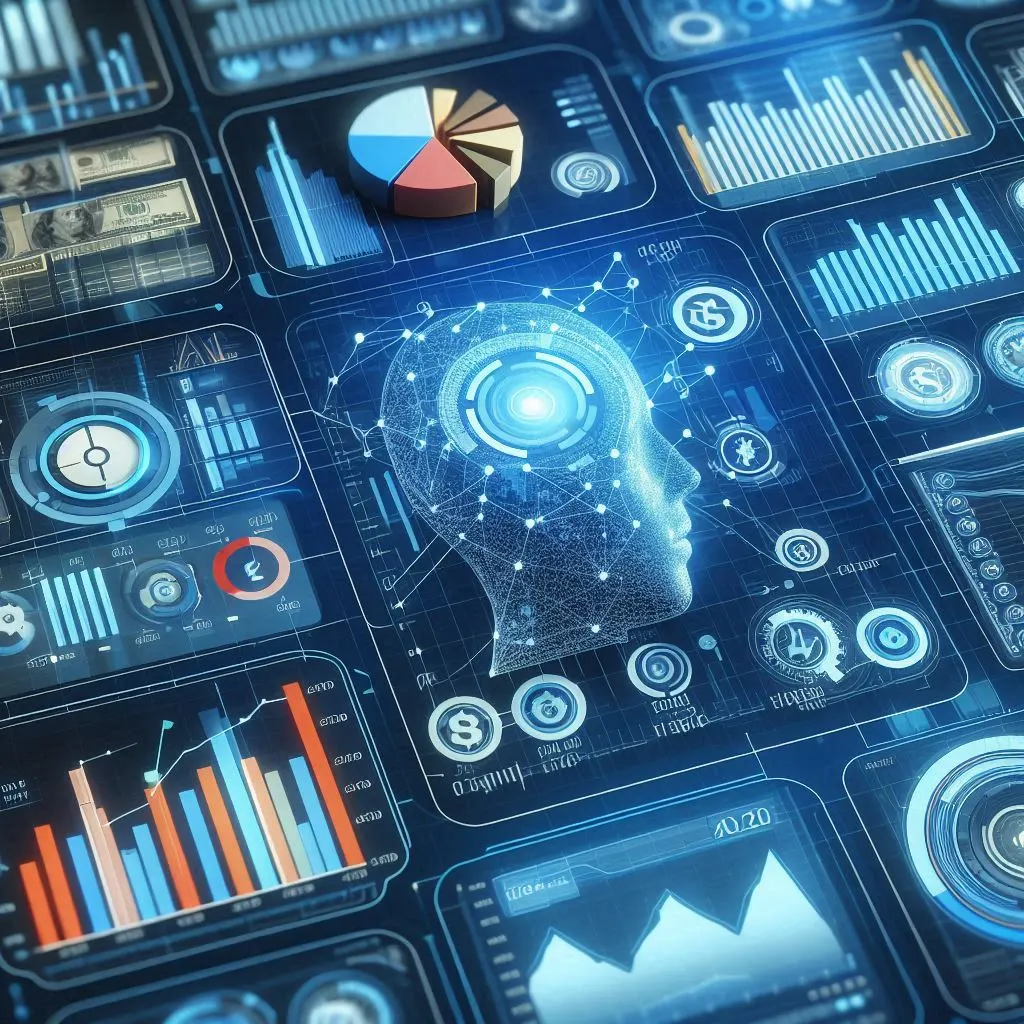Artificial Intelligence (AI) has moved from a futuristic concept to an integral part of today’s business landscape. As we step into 2024, the influence of AI on business operations is more profound than ever.
From enhancing decision-making to optimizing customer interactions, AI offers powerful tools that can transform the way businesses operate. According to a study by PwC, AI could contribute up to $15.7 trillion to the global economy by 2030.
Imagine leveraging this cutting-edge technology to streamline your operations, predict market trends, and elevate your customer experience. In this article, we’ll explore the best AI solutions for businesses in 2024, helping you stay ahead in an increasingly competitive market.
Table of Contents
AI-Powered Data Analytics
In today’s data-driven world, the ability to turn raw data into actionable insights is crucial for any business. AI-powered data analytics tools have revolutionized how businesses approach data, making it easier to uncover patterns, predict outcomes, and make informed decisions.

Understanding AI in Data Analytics
AI in data analytics involves the use of machine learning algorithms to process vast amounts of data at unprecedented speeds. These tools can identify trends and correlations that might go unnoticed with traditional analytics, giving businesses a competitive edge.
Key AI Tools for Data Analytics
Tools like IBM Watson and Google Analytics 360 are at the forefront of AI-powered analytics, providing businesses with the ability to perform complex data analysis quickly and accurately. These tools help businesses understand customer behavior, optimize marketing strategies, and improve operational efficiency.
Real-World Applications
A notable example is Netflix, which uses AI-driven data analytics to recommend content to its users. By analyzing viewing habits and preferences, Netflix can suggest shows and movies that are likely to interest individual users, significantly improving user engagement.
AI in Customer Service
Customer service is a critical area where AI is making significant inroads. With AI, businesses can enhance customer experiences, automate responses, and ensure round-the-clock service.

The Role of AI in Enhancing Customer Experience
AI-powered chatbots and virtual assistants are transforming customer service by providing instant, personalized responses to customer inquiries. These tools not only reduce the workload on human agents but also ensure that customers receive consistent and accurate information.
Best AI Tools for Customer Service
Platforms like Zendesk and Drift are leading the way in AI customer service solutions. These tools integrate seamlessly with existing CRM systems, allowing businesses to automate responses, track customer interactions, and gain insights into customer behavior.
Success Stories
Consider the case of H&M, which uses AI chatbots to assist customers with online shopping. These chatbots handle everything from answering product questions to guiding users through the checkout process, resulting in a more efficient and satisfying shopping experience.
AI for Marketing Automation
Marketing is another domain where AI is making a significant impact. From personalized content creation to automated campaign management, AI is enabling businesses to execute marketing strategies more effectively.

How AI is Revolutionizing Digital Marketing
AI in marketing allows businesses to create hyper-personalized campaigns that resonate with individual customers. By analyzing data from various sources, AI can identify customer preferences and deliver tailored content that drives engagement.
Top AI-Driven Marketing Tools
Tools like HubSpot and Marketo are essential for any business looking to leverage AI in marketing. These platforms offer features like automated email marketing, customer segmentation, and predictive analytics, enabling businesses to optimize their marketing efforts.
AI-Powered Content Creation
AI tools like Copy.ai and Jasper (formerly Jarvis) are changing the way content is created. These tools can generate high-quality content in minutes, from blog posts to social media updates, allowing businesses to maintain a consistent online presence with minimal effort.
AI Solutions for Supply Chain Management
Supply chain management is one of the most complex aspects of running a business, and AI is proving to be an invaluable asset in this area.

Optimizing Supply Chains with AI
AI helps businesses optimize their supply chains by predicting demand, managing inventory, and streamlining logistics. By analyzing historical data and market trends, AI can forecast demand with high accuracy, reducing the risk of overstocking or stockouts.
Leading AI Tools for Supply Chain Management
Tools like Llamasoft and SAP Integrated Business Planning (IBP) are leading the charge in AI-driven supply chain solutions. These platforms offer end-to-end supply chain visibility, allowing businesses to make informed decisions and respond quickly to changes in demand.
Case Studies in AI-Driven Supply Chains
Companies like Amazon have set the standard for AI in supply chain management. By using AI to manage everything from inventory levels to delivery routes, Amazon ensures that products reach customers faster and more efficiently than ever before.
AI in Human Resources
AI is also transforming the way businesses manage their human resources. From recruitment to employee engagement, AI tools are making HR processes more efficient and effective.

Leveraging AI for Talent Acquisition
AI-driven recruitment tools like HireVue and Pymetrics use machine learning algorithms to screen resumes, assess candidate fit, and even conduct initial interviews. This helps businesses identify the best candidates faster and reduces the time-to-hire.
AI Tools for Employee Engagement
Tools like TINYpulse and Culture Amp use AI to monitor employee engagement and provide actionable insights. By analyzing employee feedback and sentiment, these tools help HR teams identify potential issues and improve workplace morale.
Ethical Considerations in AI for HR
While AI offers many benefits in HR, it also raises ethical concerns, particularly around bias in recruitment algorithms. Businesses must ensure that their AI tools are designed and implemented in ways that promote fairness and diversity.
AI and Cybersecurity
As businesses increasingly rely on digital platforms, cybersecurity has become a top priority. AI is playing a crucial role in enhancing cybersecurity measures, protecting businesses from evolving threats.

How AI Enhances Cybersecurity
AI-powered cybersecurity tools can detect and respond to threats in real-time, reducing the risk of data breaches and other cyberattacks. These tools use machine learning to identify unusual patterns of behavior and respond to potential threats before they cause harm.
Best AI Cybersecurity Solutions for 2024
Solutions like Darktrace and CrowdStrike are at the forefront of AI-driven cybersecurity. These platforms offer advanced threat detection and response capabilities, helping businesses stay ahead of cybercriminals.
The Future of AI in Cybersecurity
As cyber threats become more sophisticated, AI will continue to evolve, offering even more advanced protections. Businesses that invest in AI cybersecurity solutions today will be better equipped to defend against tomorrow’s threats.
AI-Driven Financial Management
AI is also making waves in financial management, helping businesses manage their finances more effectively and make smarter investment decisions.

Leveraging AI for Financial Planning
AI tools like Xero and QuickBooks use predictive analytics to help businesses forecast revenue, manage expenses, and optimize cash flow. These tools can identify trends and anomalies, allowing businesses to make proactive financial decisions.
AI in Fraud Detection
AI-driven fraud detection tools like Kount and Simility analyze transaction data in real-time to identify suspicious activities. By detecting fraud early, these tools help businesses minimize financial losses and protect their bottom line.
Case Studies in AI Financial Management
PayPal is a prime example of a company that has successfully integrated AI into its financial management processes. By using AI to monitor transactions and detect fraudulent activity, PayPal has significantly reduced its fraud rates and enhanced customer trust.
AI in Product Development
AI is accelerating innovation in product development, enabling businesses to design, prototype, and bring products to market faster than ever before.

The Role of AI in Product Innovation
AI tools like Autodesk and SolidWorks are revolutionizing product design by automating complex tasks and providing designers with advanced simulation capabilities. This allows businesses to develop products more efficiently and with greater precision.
AI-Driven Design and Prototyping
AI is also being used in prototyping, with tools like Onshape and Fusion 360 offering advanced modeling and simulation features. These tools help businesses create and test prototypes quickly, reducing the time and cost associated with product development.
Success Stories in AI-Powered Product Development
Tesla’s use of AI in product development is a notable example. By integrating AI into its design and manufacturing processes, Tesla has been able to innovate at a rapid pace, bringing cutting-edge electric vehicles to market faster than its competitors.
Conclusion
As we navigate through 2024, the integration of AI into business operations is no longer just a trend—it’s a necessity. From data analytics to customer service, supply chain management to cybersecurity, AI solutions are providing businesses with the tools they need to innovate, streamline operations, and drive growth. By embracing the best AI solutions for your business, you can stay ahead of the competition and unlock new opportunities for success. So, what are you waiting for? Start exploring these AI tools today and take your business to the next level!

Pingback: AI in financial forecasting and Analysis in 2024 - Meg Taza